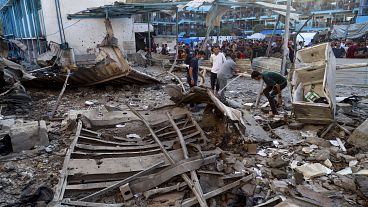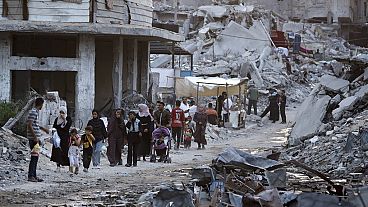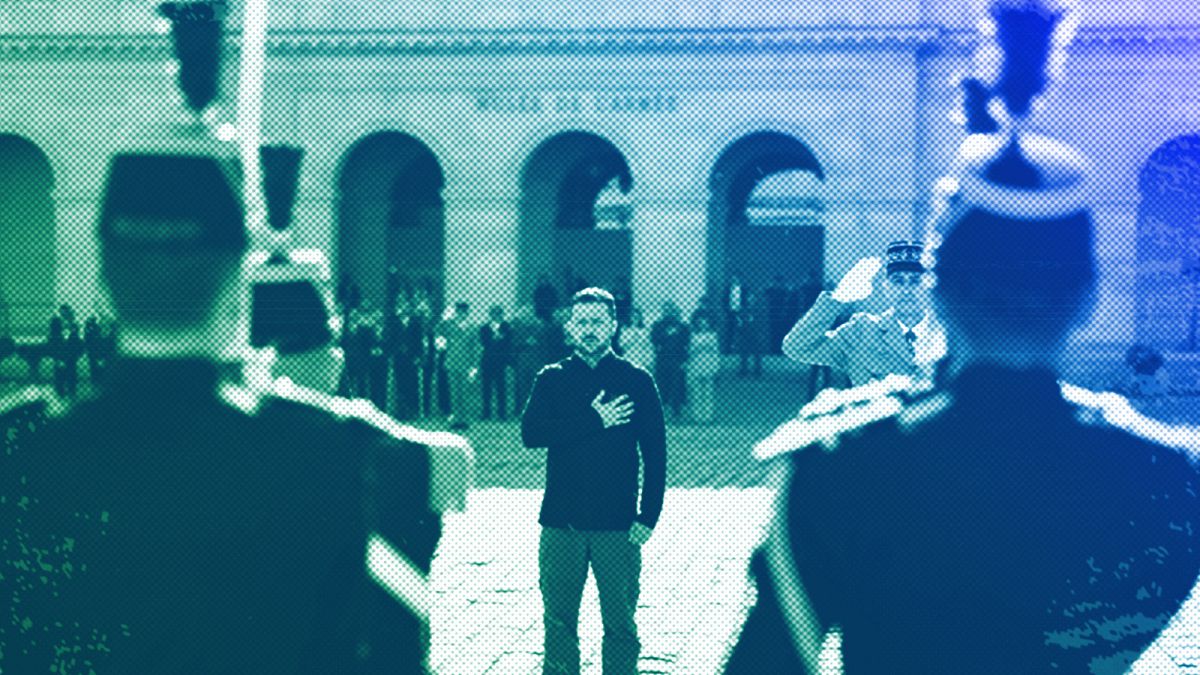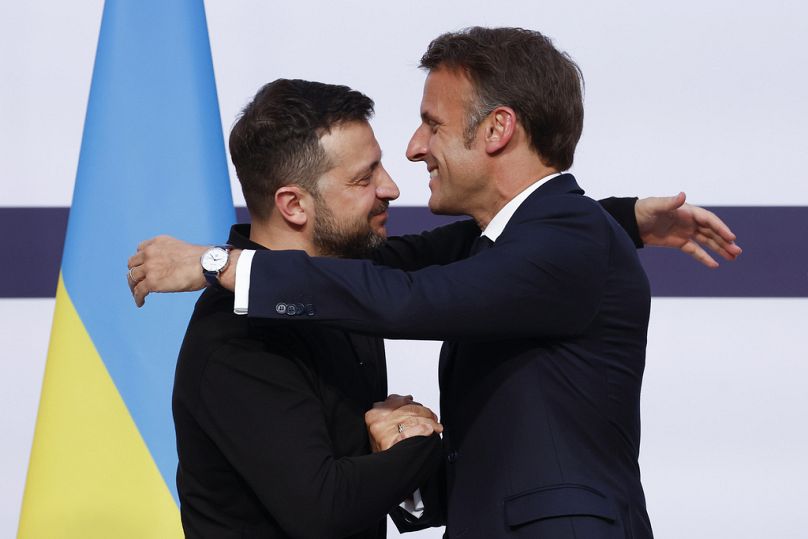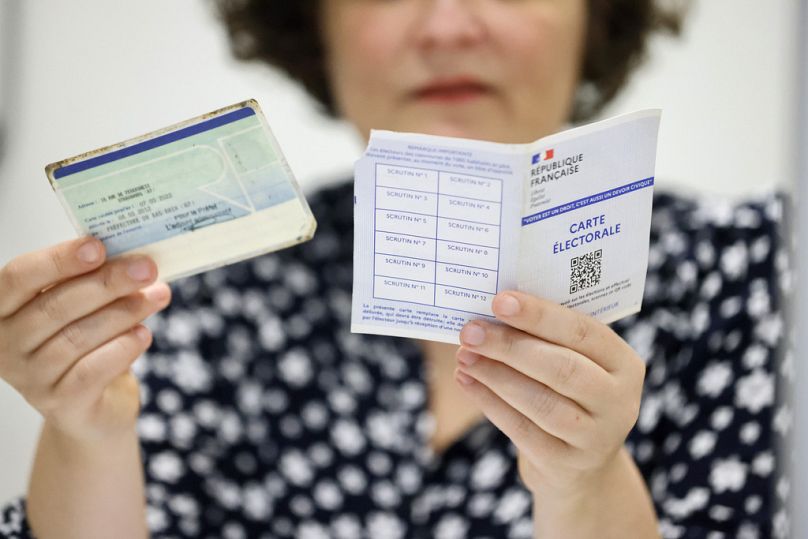If French support falters, this could effectively become the event that kills the European consensus on standing firm against Russian aggression. You know who will be opening the champagne then, Celia Belin and Pawel Zerka write.
French citizens are not only divided on domestic policy — they disagree on foreign policy, too.
If President Emmanuel Macron and a National Rally-led government cohabit, there is a high risk that Ukraine will become a political battleground.
This is not because there is no national consensus on support for Ukraine — there is — but because there are divisions on what to do next regarding the war.
If politicised, these divisions could destroy the current consensus around supporting Kyiv. An internal fight on Ukraine policy would be highly detrimental to EU unity, to Ukraine, and ultimately to French and European security.
End game divides the French
Over the past two years, French citizens have experienced the same “élan du coeur” as many other Europeans and have, by and large, approved Macron’s turn in favour of Ukraine after his fateful effort to straddle relations between Ukraine and Russia in February and March 2022.
Support for Ukraine and for sending it weapons has become so consensual that all three of the main competitors in the upcoming French elections are in accord.
The New Popular Front, on the left, has been unequivocal on this point, particularly around the supply of essential weapons. Meanwhile, the National Rally’s Jordan Bardella recently stated that France must continue to give Ukraine “the means to defend itself”.
But the French are divided on the end game. When asked what Europe should do about the war in Ukraine, the French respondents in our new multi-country poll were divided, almost equally, into three parts.
Some 30% would like Europe to support Ukraine in fighting back and reclaiming territories now occupied by Russia, and about 36% would prefer Europe to push Ukraine towards negotiating a peace deal. The remaining 34% don’t know, don’t care, or don’t associate themselves with either option.
This division into thirds appears to be calcifying since it was already on display in our previous poll in January.
Macron, for his part, has tried to move the needle. In February, he mentioned that Europeans may eventually have to send in ground troops. He doubled down in a TV interview soon after, insisting on the threat posed by Russia.
But Macron’s sombre assessment has failed to rally the French around the idea that Europe should support Ukraine in fighting back for its territory — the share of people who hold this view has actually decreased, from 35% to 30%, in the past five months.
In tandem with this, the proportion of the French public who believe their country is at war with Russia has increased from 24% to 32% over the past nine months — making France one of the European countries where such a perception is most widespread.
Still, Macron appears to have succeeded, at least, in familiarising the public with other possible forms of military support: 54% of French citizens are now receptive to French troops being sent to provide technical, non-combat assistance to the Ukrainian Armed Forces.
Bickering allies won't help Ukraine
Across the continent, Europeans are split on whether they’d like to see Europe support Ukraine to fight or push it to negotiate. Ukrainians, for their part, have no doubt: they want to continue fighting because they believe they can win, and they believe the most necessary element to their success is receiving enough weapons from their allies.
If the National Rally comes to power on 7 July, alone or in a coalition, it may be tempted, inch by inch, to frame French support for Ukraine as “Macron’s war”.
And if no party can form a majority government, and the 2027 presidential election looms on the horizon, there is a live risk that France’s support for Ukraine could become collateral damage.
It is one thing for the candidates to display a responsible image during a political campaign. It is a completely different ask for them to resist the temptation of deflecting and playing foreign policy cards in the event France enters a period of prolonged political instability.
This would be a costly mistake. Ukraine does not need bickering allies; it has suffered already because of the delays they cause.
Whatever the result of the legislative elections, French support for Ukraine should not be called into question.
Party leaders should note that their electorates are similar in being split on whether Europe should support Ukraine to fight or push it to negotiate. There is currently no partisan divide on this issue — and there should be none.
Who'll open the champagne?
Very soon, the presidential election across the Atlantic will become a testing ground for the European support for Ukraine.
With a Bardella government in Paris and a Trump victory in America, a shift in Western approach to Ukraine and Russia will surely be on the cards.
France might not be alone among European countries in changing its position and choosing to push for peace negotiations, given the political climate in Italy, Greece, Austria, or Hungary and their public's scepticism about the extent of European support for Ukraine.
But France is not like any of these countries. It is one whose unequivocal support for Ukraine, in both military and political terms, has made a real difference — inspiring unity and disciplining other European countries not to break the ranks of solidarity with Kyiv.
If Paris can no longer provide this leadership, some capitals could, and should, try to fill the void — but it risks being too little too late.
If French support falters, this could effectively become the event that kills the European consensus on standing firm against Russian aggression.
You know who will be opening the champagne then.
Celia Belin and Pawel Zerka are Senior Fellows at the European Council on Foreign Relations (ECFR).
At Euronews, we believe all views matter. Contact us at view@euronews.com to send pitches or submissions and be part of the conversation.

